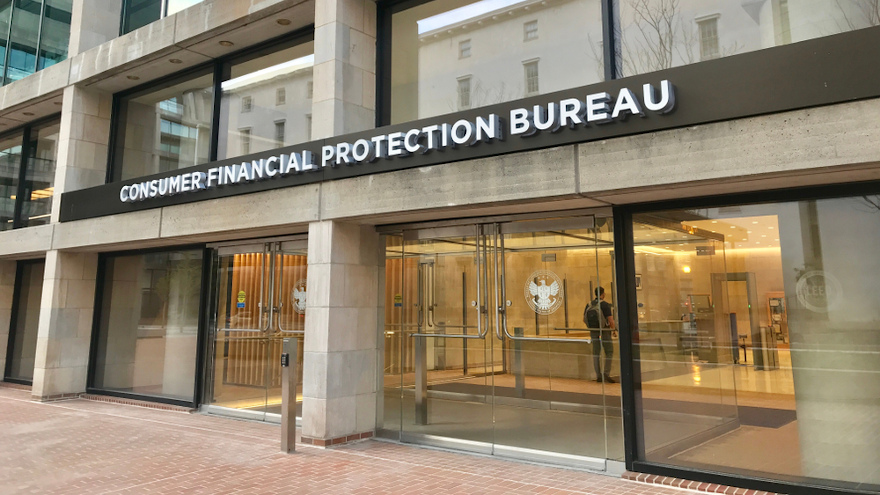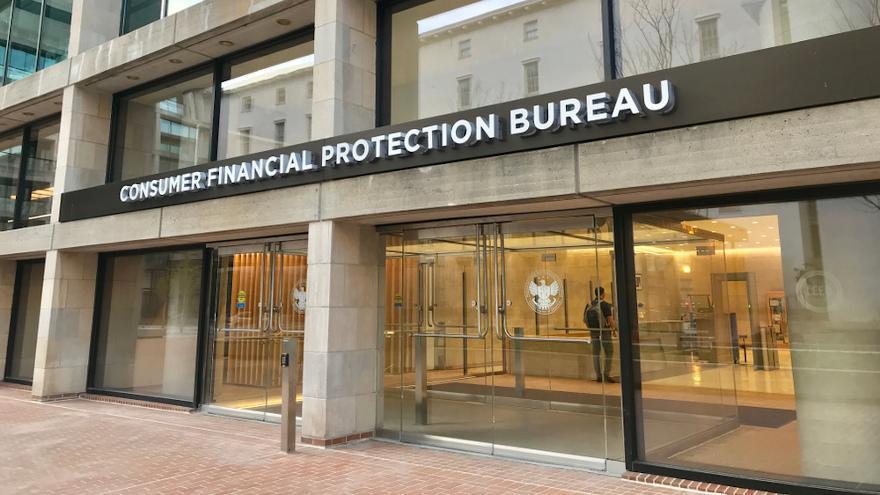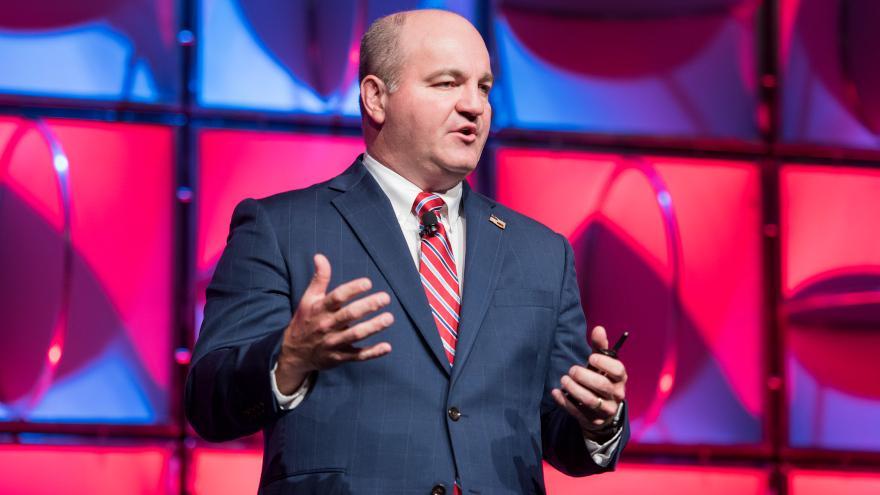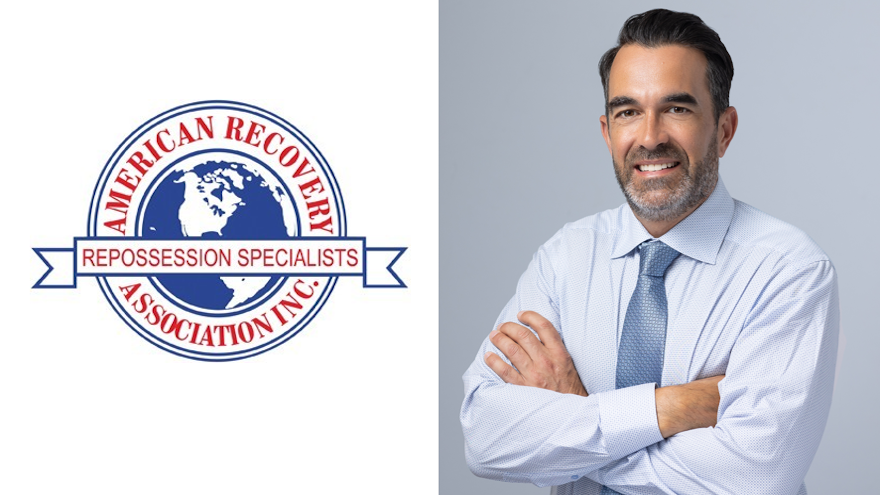Kelli Edmonds became an advisor to another industry service provider this week after founding her own consulting firm.
The former senior vice president of business control and risk management at Santander Consumer USA now is part of the executive advisor team with Provana, a provider of a unified platform for compliance and performance management.
According to a news release, Edmonds will advise and contribute to Provana’s holistic compliance and performance solutions for the auto finance industry.
In May, Edmonds joined a strategic team at Intellaegis, which specializes in collections, skip-tracing, repossessions and recoveries.
The opportunities came after the 2020 Women in Auto Finance honoree founded Kota Business Solutions, a value-added operational risk management consulting firm, following her executive roles at SCUSA, Hyundai Capital, Chase and Citi, among others.
Provana highlighted Edmonds’ industry expertise directly complements Provana’s robust compliance management system, which can automate most compliance functions mandated by the Consumer Financial Protection Bureau, including policies, certification, and vendor audit.
In the past year, Provana said it has started working with several major auto finance companies and is ramping up investment in this market.
“Kelli’s hands-on experience working as both a lender and a risk-management leader is invaluable to organizations in the auto industry looking to strengthen their compliance posture,” Provana senior vice president of products Sean Clark said in the news release. “Her expertise will enhance our tech platform’s ability to provide and automate actionable insights to Provana users in auto finance.”
Available to large and midsize enterprises in the consumer finance, legal and healthcare markets, Provana said its technology is based on a decade of business process management (BPM), AI, RPA, regulatory compliance, and secure data operation expertise. Provana BPM services operate in hundreds of client back offices.
The Provana platform can be enabled with managed services and has modules for call analytics, consumer self-service, policies, procedures, disputes, complaints, internal & external audits, noncompliance resolution, licensing and insurance, and BI for operational control.
“Provana offers a powerful combination of deep-rooted industry expertise, ROI-driven consulting, and tech automation,” Edmonds said. “I look forward to working with an industry leader to help them shape their capabilities to stay ahead of evolving requirements in the auto lending ecosystem.”
To learn, go to www.provana.com.
The largest monetary penalties handed out by the Consumer Financial Protection Bureau (CFPB) since Rohit Chopra became director in October surfaced publicly on Tuesday afternoon.
And those penalties surpassing $19 million relate to auto financing.
The CFPB penalized Hyundai Capital America for what the regulatory said was repeatedly providing inaccurate information to nationwide credit reporting companies and failing to take proper measures to address inaccurate information once it was identified between 2016 and 2020.
The CFPB explained through a news release that it found that Hyundai’s captive used manual and outdated systems, processes and procedures to furnish credit reporting information that led to widespread inaccuracies and resulted in negative inaccurate information being placed on consumers’ credit reports.
In total, the CFPB said it found that Hyundai Capital America furnished inaccurate information in more than 8.7 million instances on more than 2.2 million consumer accounts during that period.
Officials said their order requires the captive to take steps to prevent future violations and to pay more than $19 million, including $13.2 million in redress to affected consumers who were inaccurately reported as delinquent and a $6 million civil money penalty, making this development the CFPB’s largest Fair Credit Reporting Act case against an auto servicer.
“Hyundai illegally tarnished credit reports for millions of borrowers, including by falsely reporting them to credit reporting companies as being delinquent on their loans and leases,” Chopra said in the news release. “Loan servicers must be complete and accurate when furnishing information that affects a borrower’s credit report.”
Hyundai Capital America purchases and services retail installment contracts and vehicle leases originated by 1,600 Hyundai, Kia, and Genesis dealerships. The CFPB said the captive currently services approximately 1.7 million customers through its retail installment contracts and leases and has more than $45 billion of reported assets as of 2021.
Hyundai Capital America sent this statement to Cherokee Media Group on Tuesday afternoon.
“The Consumer Financial Protection Bureau (CFPB) initiated a review of Hyundai Capital America’s (HCA) credit reporting practices for its consumer retail and lease accounts, which was part of a larger credit reporting review by the CFPB across the industry,” the captive said. “To support our customers and allow us to focus on the future, we have entered into a settlement agreement with the CFPB.
“It is important to note that HCA is not admitting any fault or wrongdoing with respect to credit reporting practices covered by the investigation,” the captive continued. “As part of HCA’s efforts to drive continuous improvement, we have already launched an end-to-end review of our current credit reporting practices. Most importantly, we remain fully committed to providing our customers with timely, accurate, high-quality service and care.”
What went wrong
The CFPB said it received “many” consumer complaints that Hyundai inaccurately reported account information to credit reporting companies. During its investigation, the CFPB said it found that Hyundai repeatedly provided inaccurate credit report information about consumer payments on installment contracts and leases that Hyundai purchased and serviced.
“In many cases, Hyundai knew it was providing inaccurate information and failed to take reasonable measures to address the inaccuracies,” the CFPB said. “Hyundai identified many of the issues causing these inaccuracies in its internal audits, but still took years to address the problems.”
Between January 2016 and March 2020, the CFPB said it also found the captive violated the Fair Credit Reporting Act (FCRA) and its implementing regulation, Regulation V, by:
—Failing to report complete and accurate contract and lease account information: The bureau said the captive repeatedly did not take steps to promptly update and correct information it furnished to credit reporting companies that it determined was not complete or accurate, and continued to furnish this inaccurate and incomplete information.
—Failing to provide date of first delinquency information when required: The CFPB reiterated the FCRA requires data furnishers to provide credit reporting companies the date of delinquency for when a delinquent account is being charged off or placed for collections. The bureau said the captive failed to report a date of delinquency for many consumers who were more than 90 days delinquent.
—Failing to modify or delete information when required: The CFPB said the captive’s furnishing system often overrode manual corrections made by employees in responding to consumer disputes. The furnishing system would provide monthly updates to credit reporting companies that reintroduced the data error after it had been disputed and corrected, according to the regulator.
—Failing to have reasonable identity theft procedures: The bureau also mentioned FCRA requires furnishers to respond to any notifications from credit reporting companies about furnished information that is the result of identity theft. The CFPB said the captive failed to establish reasonable identity theft and related blocking procedures to respond to identity theft notifications and continued to report such information that should have been blocked on a consumer’s report.
—Failing to have reasonable accuracy and integrity policies and procedures: The CFPB explained Regulation V requires furnishers to maintain written policies and procedures regarding the accuracy and integrity of the information furnished. The bureau said the captive failed to review and update its credit reporting furnishing policies and procedures from 2010 to 2017. It was not until 2021 that the company finally updated some of its credit reporting policies and procedures, according to officials.
More details of enforcement action
The CFPB specified the four components of its penalties against Hyundai Capital America, including
—Pay $13.2 million in compensation to current and former customers: As identified by the CFPB, consumers about whom the captive, after determining the information was inaccurate, furnished to credit reporting companies inaccurate information that the consumers were 30 or more days past due on an automobile retail installment contract or lease will receive compensation for the harm incurred.
—Pay a $6 million fine: The captive will pay a civil money penalty to the CFPB, which will be paid towards the victims relief fund. This fund provides compensation to consumers harmed by violations of federal consumer financial protection law.
—Take steps to correct all inaccurate account information: The bureau said the captive will review all account files that it currently furnishes to credit reporting companies and correct all inaccuracies and errors described in the order and send updated information to the credit reporting companies.
Hyundai Capital America will also examine its monthly furnishing data processes for the errors described in the order, take reasonable steps to identify such errors, and resolve identified errors before providing the data to any credit reporting company.
—Address procedures identifying and correcting inaccurate information: The CFPB said Hyundai Capital America will establish and implement written policies and procedures regarding the accuracy and integrity of the information relating to consumers that it furnishes to a credit reporting company. The captive must specifically include processes for identifying and promptly correcting systemic errors in its credit report furnishing system.
Hyundai Capital America will also examine current policies and procedures and implement changes to the practices of its employees to ensure that its employees properly route, categorize, investigate, and respond to all direct and indirect credit reporting disputes.
Earlier this summer, Consumer Financial Protection Bureau director Rohit Chopra compiled a blog post beneath the heading, “Rethinking the approach to regulations.”
Chopra articulate three reasons why the CFPB now sees it as “important to move away from the failed approach of the past.”
The director wrote, “Markets work best when rules are simple, easy to understand, and easy to enforce. The CFPB is seeking to move away from highly complicated rules that have long been a staple of consumer financial regulation and towards simpler and clearer rules.
“In addition, the CFPB is dramatically increasing the amount of guidance it is providing to the marketplace, in accordance with the same principles,” Chopra continued.
An example of what Chopra referenced arrived earlier this month when the bureau said it issued a legal interpretation to ensure that companies that use and share credit reports and background reports have a permissible purpose under the Fair Credit Reporting Act (FCRA).
Turning back to the blog post, Chopra wrote, “Regulators have historically issued overly complicated and tailored rules for the existing regulatory landscape, as opposed to providing basic bright-line guidance and rules that can withstand evolution of the marketplace over time.
“The CFPB aspires to more clearly communicate the agency’s expectations in simple and straight-forward terms, which will produce more durable guidance and rules, in addition to numerous other benefits,” he added.
So how might the CFPB arrive at those compliance goals to have their intended benefits? Here’s how Chopra articulate the path in that blog post.
“First, unnecessarily complex guidance and rules impede consumer protection, and instead simply increases compliance costs, which benefits larger market players and their high-priced lawyers. Unnecessary complexity places new entrants and small firms at a disadvantage compared to their larger competitors,” he wrote. “The CFPB plans to issue guidance in a manner that strengthens the compliance posture of all market participants, not just those with the most market power or resources.
“Second, simple bright-lines allow all parties to better understand the law and policy priorities, but also, prevent strategic or intentional ‘misunderstanding’ or plausible deniability that some companies use to ignore the law,” Chopra continued. “Complexity creates unintended loopholes, but it also gives companies the ability to claim there is a loophole with creative lawyering. Where guidance and rules are straight-forward and simple, entities are incentivized to redirect innovation and creativity away from regulatory evasion and towards better serving consumers. Simple bright-lines advantage law-abiding companies and disadvantage law breakers.
“Third, clarity and simplicity will promote consistency among government agencies responsible for enforcement of federal consumer financial law,” he added.
Chopra not only cited the CFPB, but he also mentioned the Federal Reserve Board of Governors and the Federal Trade Commission in connection with a review of rules the bureau inherited. Chopra specifically pointed out rules originally developed by the FTC to implement the FCRA in an effort to identify potential enhancements and changes in business practices.
“Many of these rules have now been tested in the marketplace for many years and are in need of a fresh look,” Chopra wrote.
The bureau director wrapped up his message by stating, “The CFPB will continue its efforts to clearly communicate the agency’s expectations in simple and straight-forward terms in the months ahead and we welcome the public’s input.”
A trio of officials from the Consumer Financial Protection Bureau reiterated their position about repossessions and Servicemembers Civil Relief Act (SCRA).
Earlier this week, Patrick Brick, Ryan Kelly and Chris Kukla published a blog post on the bureau’s website recapping CFPB research as well as the SCRA. They said by the age of 24, about 20% of young servicemembers have at least $20,000 in auto debt, which the CFPB officials computed to be nearly two-thirds of a young enlisted soldier’s typical base salary.
“If you take a drive down the main road leading to most military bases in the country, you’ll likely see car dealerships lining both sides of the street. The CFPB’s prior research has shown that young servicemembers tend to take out auto loans soon after joining the military and carry more auto debt than their civilian peers. This isn’t altogether surprising. When many servicemembers finish basic training, their first duty station is often in an area where a car is needed to get around or leave the base,” the CFPB officials wrote.
“Access to credit can be an important and valuable tool for servicemembers,” they continued. “At the same time, if a servicemember becomes unable to keep up with financial obligations, it can lead to adverse personnel actions such as a lost security clearance or potential discharge. Many servicemembers are young, first-time car buyers with limited knowledge of credit products and terms.
“Accordingly, they may be more likely to agree to products they don’t need or understand or receive loan terms that are not in their best interest. While we expect that lenders will treat all borrowers fairly and responsibly, lenders need to pay particular attention to how they treat servicemembers and their families,” the CFPB officials went on to say.
Brick, Kelly and Kukla closed their blog post with a direct message to the repossession and recoveries industries.
“We expect servicers, lenders and repossession agents to adhere to the requirements under the SCRA, particularly when using new repossession technologies to ensure that servicemembers are treated fairly and that all applicable laws and regulations are carefully followed,” they wrote.
While the CFPB made these assertions this week, it’s been the Department of Justice that has carried out enforcement actions during the past couple of years involving vehicle repossessions and the SCRA.
In October, the Justice Department said Chrysler Capital agreed to pay more than $134,000 to settle a federal lawsuit alleging that the company denied early vehicle lease terminations to servicemembers who qualified for them under SCRA.
In September 2020, the Justice Department reached an agreement with ASAP Towing & Storage Co. (ASAP) in Jacksonville, Fla., to resolve allegations that ASAP violated a federal law and the SCRA by auctioning off or otherwise disposing of vehicle owned by protected servicemembers without first obtaining court orders.
And in August 2019, the Department of Justice announced Nissan Motor Acceptance Corp. (NMAC) agreed to pay almost $3 million to resolve allegations that it violated the SCRA.
Last week, the Consumer Financial Protection Bureau (CFPB) turned its attention back to credit reports.
The bureau said it issued a legal interpretation to ensure that companies that use and share credit reports and background reports have a permissible purpose under the Fair Credit Reporting Act.
Officials said through a news release that the CFPB’s new advisory opinion “makes clear” that credit reporting companies and users of credit reports have specific obligations to protect the public’s data privacy. The advisory also reminds covered entities of potential criminal liability for certain misconduct.
“Americans are now subject to round-the-clock surveillance by large commercial firms seeking to monetize their personal data,” CFPB director Rohit Chopra said in the news release. “While Congress and regulators must do more to protect our privacy, the CFPB will be taking steps to use the Fair Credit Reporting Act to combat misuse and abuse of personal data on background screening and credit reports.”
The bureau recapped that Congress enacted the Fair Credit Reporting Act in 1970 to ensure companies “exercise their grave responsibilities with fairness, impartiality, and a respect for the consumer’s right to privacy.” The Fair Credit Reporting Act regulates companies that assemble dossiers on individual consumers, including credit reporting companies, tenant screeners and other data brokers.
Among other things, the CFPB explained the Fair Credit Reporting Act ensures fair and accurate reporting, and it requires users who buy these dossiers to have a legally permissible purpose. The regulator pointed out that this process ensures that companies cannot check an individual’s personal information, including their credit history, without a bona fide reason.
Some common permissible purposes include using consumer reports for credit, insurance, housing, or employment decisions. For example, a bank may request a credit report in order to determine the terms on which it will offer someone a line of credit.
The CFPB said its advisory opinion will help to hold responsible any company, or user of credit reports, that violates the permissible purpose provisions of the Fair Credit Reporting Act. Specifically, the advisory opinion “makes clear,” according to the agency that:
— Insufficient matching procedures can result in credit reporting companies providing reports to entities without a permissible purpose, which would violate consumers’ privacy rights: For example, when a credit reporting company uses name-only matching procedures, the items of information appearing on a credit report may not all correspond to a single individual. That means the user of a credit report could be provided a report about a person for whom the user does not have a permissible purpose.
— It is unlawful to provide credit reports of multiple people as “possible matches:” Credit reporting companies may not provide reports on multiple individuals where the requester only has a permissible purpose to obtain a report on one individual. They must have adequate procedures to find the right person, or else the result may be that they provide a report on at least one wrong person.
— Disclaimers about insufficient matching procedures do not cure permissible purpose violations: Disclaimers will not cure a failure to take reasonable steps to ensure the information contained in a credit report is only about the individual for whom the user has a permissible purpose.
— Users of credit reports must ensure that they do not violate a person’s privacy by obtaining a credit report when they lack a permissible purpose for doing so: The Fair Credit Reporting Act strictly prohibits anyone from using or obtaining credit reports without a permissible purpose.
The CFPB also mentioned its advisory opinion outlines some of the criminal liability provisions in the Fair Credit Reporting Act.
Officials said covered entities can face criminal liability for obtaining a background report on an individual under false pretenses or by providing a background report to an unauthorized individual.
For example, officials explained Section 620 of the Fair Credit Reporting Act imposes criminal liability on any officer or employee of a consumer reporting agency who knowingly and willfully provides information concerning an individual from the agency’s files to an unauthorized person.
Violators can face criminal penalties and imprisonment, according to the CFPB.
The CFPB will continue to take steps to ensure credit reporting companies and other relevant entities adhere to the Fair Credit Reporting Act and other consumer financial protection laws,” officials said, while noting that the entire advisory opinion can be viewed online via this website.
The newest board member of the Association of Dealership Compliance Officers (ADCO) is intimately familiar with what dealers need to do to satisfy demands placed by state and federal regulators.
ADCO executive director Linda Robertson recently announced that Shaun Petersen, who now is executive vice president and chief legal officer for Buckeye Dealership Consulting, is joining the association’s board of directors.
Buckeye is a leading provider of re-insurable products for dealers. Petersen is responsible for the company’s legal and compliance operations, partnerships, and other business strategies
Petersen previously served as the senior vice president of legal and government affairs for the National Independent Automobile Dealers Association (NIADA). He supervised all legislative and regulatory matters, often appearing in front of the executive and legislative branches of both the federal and state governments. He was also responsible for the strategic engagement of NIADA’s political activities, including its political action committee.
In addition, Petersen served as general counsel for the association.
“We are thrilled to welcome Shaun to the board,” Robertson said. “Besides his valuable knowledge and expertise in the legislative and regulatory arena, he brings experience in a dealer segment that was under-represented among our directors.”
Prior to his position with NIADA, Petersen was a founding partner in a boutique law firm in Columbus, Ohio, representing businesses primarily in the automotive industry in matters related to state and federal consumer financial protection laws. He was also a senior deputy attorney general and chief of the consumer protection section in the Ohio attorney general’s office.
Petersen has appeared as a guest speaker at many conferences, including Used Car Week, provided numerous media interviews, and authored articles on legal, legislative and regulatory topics impacting automobile dealers and the automotive industry.
For more information about ADCO, visit www.adcocommunity.com.
Having just established new leadership, the American Recovery Association is continuing its proactive approach to serve its members, highlighting the potential pitfalls of a potential “edict” recently made by an unnamed auto finance company.
The entire matter stems from recent bulletin distributed by the Consumer Financial Protection Bureau titled, “2022-04: Mitigating Harm from Repossession of Automobiles.” ARA recapped that the bulletin outlines the bureau’s application of the unfair and deceptive acts and practices (UDAAP) to the repossession process.
In the bulletin, ARA noted that the bureau lays out a variety of categories of concern and references prior enforcement cases brought by the CFPB.
In section III of the bulletin, under the category of “the bureau’s expectations,” ARA pointed out that the CFPB cited 20 unique examples of instances where the bureau intends to hold “auto lenders, loan holders, and servicers accountable if they or their agents commit UDAAPs when repossessing automobiles.”
Now here’s when the situation become even more complicated, according to a news release distributed by ARA this week.
The association said a recent letter from a finance company client was distributed to its network of agents and forwarders. According to ARA, the letter indicates that repossession agents will be held liable in situations where the wrongful repossession was determined to be a result of a failure on the part of the repossession agent.
The association referenced two examples contained in the letter, including:
—The repossession order was not validated prior to the repossession
—Ff the repossession agent caused a delay in returning collateral that was deemed “wrongfully repossessed” by the finance company
According to ARA, this initiative went into effect on July 1 for this finance company and its agents. The letter also outlined monetary penalties to be absorbed by the repossession agent under these circumstances, the ARA said.
“Standard indemnification clauses already exist in contracts between lenders, servicers and the agents,” ARA said. “Issuing a letter indicating a shift in liability and monetary penalties to your network of agents comes across more like an edict, and does not necessarily constitute a legally binding, and agreed to contract change.
“The American Recovery Association (ARA) is against this approach,” the organization continued. “It puts an additional burden on the agents that is redundant with the liability already contractually owned by agents within the contracts that are already in place. The ARA welcomes all opportunities to work with lender and servicer partners to build standards and procedures that are acceptable to all involved.”
And likely to be a part of that potential process is new ARA executive director Joel Kennedy, who elaborated about taking on this position in a separate message sent to SubPrime Auto Finance News.
“Working alongside Les McCook and Dave Kennedy for the past four years has been an honor and a downright pleasure,” Joel Kennedy said. I thank the National Automotive Finance Association’s first executive director Jack Tracey for having the guts and the vision to build a bridge between the NAF and the ARA. I see my leadership role in the ARA as a continuation of the work and progress we have made.
“I have watched the birth of Repo Alliance, which finally gives the recovery industry a voice on Capitol Hill. I have watched Les and Dave unite the industry. These are not easy things. In fact, there were more people advising us that we are wasting our time, rather than throwing their weight and support behind us,” Joel Kennedy continued.
“I am blessed to have the opportunity to use my gifts for the betterment of the industry. The American consumer and our lender clients deserve to be served by the ARA; the most professional, highly trained, compliant, and dedicated group of recovery professionals on the planet,” Joel Kennedy went on to say.
“Exciting times are ahead, and I invite my peers in the other industry trade groups to pick up your gloves and get in the game. United we can do so much to move the industry forward all while protecting and respecting the rights of hard-working Americans,” he added.
For the second week in a row, F&I Sentinel added to its human resources.
Last week, the compliance solutions provider with respect to the financing of F&I products reinforced its executive team with two former team members at F&I Express.
This week, F&I Sentinel announced that Rick Hackett, former Hudson Cook partner as well as assistant director at the Consumer Financial Protection Bureau (CFPB), has joined its advisory board.
Hackett served under former CFPB director Richard Cordray, focusing on auto financing regulation. His responsibilities included advising all CFPB divisions on market information and policy issues in the installment and specialty lending areas, including vehicle financing.
“We’re thrilled to have Rick join our advisory board,” F&I co-founder and chief executive officer Stephen McDaniel said. “His expertise and knowledge in auto financing policy and compliance, coupled with his experience and familiarity working within the CFPB, will significantly help us enhance our service offerings and benefit our customers.”
Hackett helped lead the CFPB’s initial charter into the auto finance industry, tasked with guiding strategy for examining and investigating dealer participation programs. At a 2014 industry conference, Hackett foreshadowed the need for auto finance companies to adopt and execute a comprehensive compliance solution to meet emerging regulatory requirements and policies.
“The F&I Sentinel team’s grasp of the complexity and nuances of F&I product financing and their market intelligence practices and processes have quickly established them as a leader in this space,” Hackett said. “I look forward to advising the executive team as it continues to innovate its service offerings and expand the company.”
Prior to joining F&I Sentinel in an advisory capacity, Hackett spent 31 years practicing law before he joined the CFPB in 2011. He left the agency in 2013, and the following year joined Hudson Cook, LLP.
Hackett retired from Hudson Cook in 2019 and currently serves as an advisor and board member for several companies.
A trio of dealership operations in the Garden State are set to pay hefty penalties for alleged violations of advertising, warranties and other financing and retailing matters.
Last week, New Jersey acting attorney general Matthew Platkin and the state’s Division of Consumer Affairs announced separate settlements totaling nearly $400,000 with the dealerships for alleged consumer protection violations.
According to a news release, the alleged violations involving Open Road Auto Group, Glen Motors and Lynnes Dealerships included:
— Failing to disclose prior accident history
— Deceptive advertising
— Failing to honor vehicle warranties
— Failing to list vehicle prices on sales documents
— Charging consumers for certain fees twice
— Failing to itemize aftermarket products or dealer-installed options
— Failing to obtain consumer signatures on all sales documents
— Accepting incomplete credit applications from prospective buyers
In addition to paying civil monetary penalties, state officials said the dealerships agreed to refrain from engaging in any unfair or deceptive acts or practices, comply with all applicable state and federal laws and resolve consumer complaints.
“Dodging illegal practices should be the last thing New Jerseyans have to worry about as they search for a vehicle in this challenging market,” Platkin said in the news release. “These settlements demonstrate our commitment to protect consumers and ensure transparency in the state’s auto market.”
Acting Director of the Division of Consumer Affairs Cari Fais added, “The Division has a duty to protect New Jersey consumers by ensuring dealerships live up to their promises. In addition to providing relief to affected consumers, these settlements make clear that we will not tolerate car dealerships that disregard our laws and regulations.”
Settlement involving Open Road
Officials said Open Road Auto Group, which operates 15 locations in New Jersey, agreed to a $300,000 settlement to resolve an investigation into allegations that included failing to disclose prior accident history, using deceptive advertising and failing to honor vehicle warranties.
Under the terms of the assurance of voluntary compliance entered with the division, Open Road Auto Group, among other things, agreed to:
— Disclose the total cost, the down payment, trade-in or rebate, if any, plus the total scheduled periodic payments in the advertisement of installment sales of vehicles
— Include a statement that “prices include all costs to be paid by consumer, except for licensing costs, registration fees, and taxes,” in the advertisement of new or used vehicles
— Disclose in the advertisement that a vehicle had been previously damaged and that substantial repair or body work has been performed on it when such prior repair or body work is known or should have been known
— Refrain from charging customers for work done or parts supplied in excess of any estimate, without oral or written consent from the customer
— Accurately disclose the purchase price of any dealer-installed options;
— Refrain from misrepresenting to consumers that aftermarket merchandise such as service contracts and window etch are mandatory
— Itemize all aftermarket merchandise on leases, sales documents and contracts;
— Refrain from charging consumers separately for a “destination charge” on any advertised vehicle when the cost is already included in the advertised price
— Provide consumers with an opportunity to review all lease documents prior to signing.
Official said Open Road Auto Group also agreed to provide a $100 service credit coupon toward service, maintenance, or repair for all consumers who purchased a vehicle in 2017 and were charged a wash and detail fee.
Additionally, officials said the company will enter binding arbitration through the division’s Alternative Dispute Resolution (ADR) Unit to resolve all pending complaints from affected consumers and any additional consumer complaints received by the division for a period of three years.
Settlement with Glen Motors
Officials said Glen Motors Inc, located in Fair Lawn, agreed to a $90,000 settlement — which includes $66,088.98 in civil penalties — to resolve allegations that included failing to list the price of vehicles on its sales documents, failing to itemize aftermarket products or dealer-installed options and failing to obtain consumer signatures on all sales documents.
Under the terms of the assurance of voluntary compliance entered with the division, Glen Motors Inc., among other things, agreed to:
— Itemize all aftermarket products on the leases, sales documents and aftermarket contracts
— Provide consumers an aftermarket contract containing a clear statement of the full total price for such aftermarket products, including an itemization of the aftermarket products
— Refrain from charging consumers for aftermarket products that are not reflected in the leases, sales documents or aftermarket contracts
— Provide consumers with a full and accurate copy of all leases, sales documents, and aftermarket contracts signed by the consumer
— Not misrepresent to consumers that dealer-installed options or aftermarket products are mandatory when such is not the case
— Itemize all pre-delivery services in writing on the sales document
— Refrain from adding or charging for aftermarket products or dealer-installed options without the consumers’ written authorization
— Honor all advertised vehicle prices, terms and conditions
— Obtain the consumers’ signatures on all aftermarket contracts, leases, retail buyer’s orders, sales documents and any other document that requires the consumers’ signatures.
Officials added Glen Motors also agreed to enter binding arbitration through the division’s ADR Unit to resolve all pending complaints from affected consumers and any additional consumer complaints received by the division for a period of two years.
A portion of the settlement amount will be suspended and automatically vacated provided the company complies with the terms of the agreement over a two-year period, according to the news release.
Settlement with Lynnes
Finally, the division also announced a settlement with several Lynnes dealerships — Lynnes Nissan City, Lynnes Nissan East, Lynnes Hyundai and Lynnes Subaru, all located in Bloomfield.
Officials said Lynnes agreed to a $46,381 settlement — which includes $33,500 in civil penalties to resolve allegations that included charging consumers for certain fees twice, accepting incomplete credit applications from prospective buyers, and failing to list vehicle prices on sales documents.
Under the terms of the consent order with the division, Lynnes, among other things, agreed to:
— Comply with all applicable state and/or federal laws, rules, and regulations, including the Consumer Fraud Act, the Motor Vehicle Advertising Regulations and the Automotive Sales Practices Regulations
— Itemize all aftermarket merchandise and dealer-installed options in the sales documents and aftermarket contract
— Include the trade-in value of a vehicle on all sales documents
— Not engage in a “bait and switch” by refusing to show, display, sell, or lease vehicles at the advertised price, as required by the Consumer Fraud Act and the Motor Vehicle Advertising Regulations;
— Accurately disclose the sale price of vehicle on the sales documents; and
— Refrain from signing any aftermarket contract, lease, sales document or other document on behalf of a consumer or affixing a consumer’s signature to any document
Officials went on to mention Lynnes also agreed to enter binding arbitration through the division’s ADR Unit to resolve all pending complaints from affected consumers and to arbitrate, if necessary, any additional consumer complaints received by the division for a period of three years.
A portion of the settlement amount will be suspended and automatically vacated provided the company complies with the terms of the agreement, according to officials.
Lendisoft and Carleton finalized an integration on Tuesday.
The California-based loan servicing software provider announced that it has integrated CarletonCalcs APIs within its Lendisoft servicing platform.
According to a news release, Lendisoft is a preconfigured enterprise loan management system (LMS) with a full suite of risk management and compliance features. The included risk management features are designed to maximize collection efforts while ensuring payments are collected and reported in accordance with lender allocation requirements.
Lendisoft said its sophisticated compliance solution is designed to ensure federal and state regulations, as well as Consumer Financial Protection Bureau mandates, are tracked and followed.
Meanwhile, Carlton highlighted that CarletonCalcs is a suite of computation software APIs that can enable software applications to calculate payments, fees, taxes, and nearly all calculations required for every subset of the consumer lending industry.
Lendisoft Servicing leverages CarletonCalcs Loan Servicing APIs, enhancing the compliance features built into Lendisoft’s platform.
Lendisoft Servicing integrated specific CarletonCalcs APIs to ensure proper interest accrual rules and allocations between principal interest, late charges, and non-sufficient funds fees. These rules, charges, and fees are accurately aligned with state regulations and institutional product requirements, according to the companies.
The CarletonCalcs APIs also can support Lendisoft’s ability to tailor corresponding loan-servicing workflows and risk assessment tools for all their finance companies, dealers, and financial service providers utilizing their platform.
By partnering with Carleton, Lendisoft said it is well-positioned to expand and bring its LMS into any consumer lending market.
“CarletonCalcs offers Lendisoft a proven workflow and process for our most sophisticated and progressive clients. Our choice was simple Carleton leverages the Lendisoft API wizards to ensure integration is done right the first time and in the least time,” Lendisoft founder and chief executive officer Vijay Singh said in the news release
Lendisoft chief revenue officer Bill Gerber added, “Carleton was the right choice from a ‘go-to-market’ perspective too. Their market share, compliance maturity, and platform reliability give Lendisoft client’s the security and comfort to focus on their business — lending money.
Carleton and Lendisoft went on to say that they mutually embrace a compliance-first focus that provides great synergy between their comprehensive suite of products.
“Lendisoft LMS is driven by a team of executives who have the experience to understand the demand for compliance features expected in a modern LMS solution,” Carleton president, and chief operating officer Matt Ruszkowski said. “Lendisoft Servicing was built to address the resource-intensive burden compliance practices require in the consumer lending industry. Lendisoft built a product focused on maximizing the efficiency of a quick API integration with the software tools to significantly reduce compliance burdens.
“Their CarletonCalcs integration adds further assurance that the compliance tools in the Lendisoft Servicing LMS are delivered with the latest technology, are quick to implement, and are flexible enough to adapt to any regulatory requirement in the future,” Ruszkowski continued.












